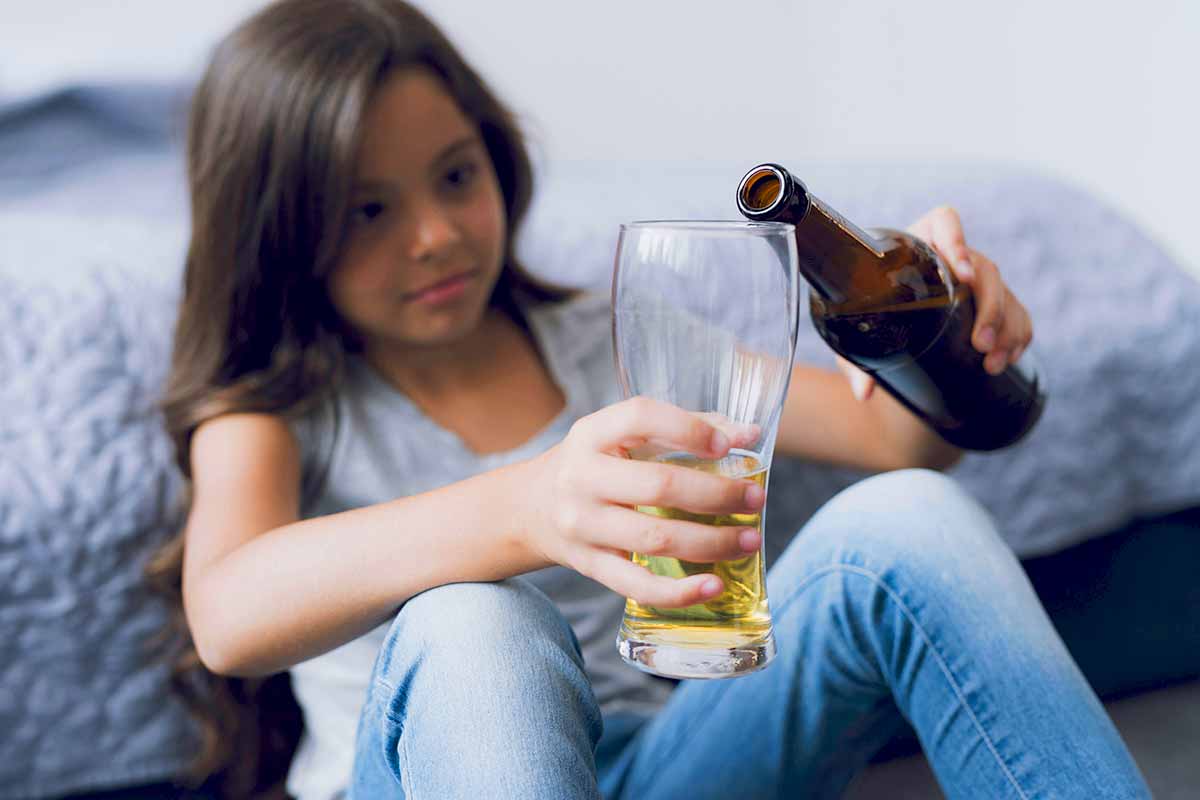Teen Alcohol Abuse
Teen alcohol abuse, also known as underage drinking, refers to the consumption of alcoholic beverages by individuals under the legal drinking age, which is 21 years in the United States.
Some key points about teen alcohol abuse:
- Prevalence: Alcohol is the most widely used substance among adolescents, with about 19% of teens reporting underage drinking in the past month (CDC).
- Early initiation: Many teens start drinking at a very young age, with about 7% having their first drink before age 13.
- Binge drinking: Binge drinking (consuming 4-5 drinks in a short period) is common among underage drinkers, which increases risks.
- Brain development: Alcohol abuse during adolescence can negatively impact brain development and cognitive function.
- Risk-taking behavior: Intoxicated teens are more likely to engage in risky behaviors like unprotected sex, violence, or operating vehicles.
- Dependence risk: Early drinking increases the likelihood of developing an alcohol use disorder later in life.
- Academic problems: Underage drinking is associated with poor academic performance, absenteeism, and increased dropout rates.
- Social factors: Peer pressure, low self-esteem, family history of alcoholism, and media exposure influence teen drinking.
- Health risks: Short-term risks include alcohol poisoning, injuries, and risky sexual behavior. Long-term risks include liver damage and cognitive impairment.
- Co-occurring issues: Many teens with alcohol problems also have other mental health disorders like depression or ADHD.
Preventing and treating underage drinking requires a multifaceted approach involving parents, schools, communities, policies, and treatment services. Education on the dangers of alcohol, counseling, and addressing underlying issues are important components of intervention.
How do I prevent my teen from drinking?
Preventing your teen from drinking is a challenging task, but there are several strategies you can use to reduce the likelihood of them engaging in underage drinking. Here are some tips:
- Set clear expectations: Let your teen know that you disapprove of underage drinking and that it’s not acceptable behavior. Make sure they understand the consequences of drinking, including legal, health, and social risks.
- Communicate openly: Encourage your teen to talk to you about their feelings and concerns. Listen to their concerns and address any issues they may be facing. This can help build trust and reduce the likelihood of them turning to drinking as a coping mechanism.
- Educate yourself: Learn about the risks of underage drinking and the signs of addiction. This will help you have informed conversations with your teen and make it clear that you’re concerned about their well-being.
- Monitor their behavior: Pay attention to your teen’s behavior and activities. If you notice any changes in their behavior or associations with peers who may be drinking, address these concerns promptly.
- Encourage healthy alternatives: Encourage your teen to engage in healthy activities such as sports, music, or hobbies. This can help them develop positive coping mechanisms and reduce the likelihood of them turning to drinking as a way to cope with stress or boredom.
- Limit access to alcohol: Make sure you’re aware of where your teen is getting their alcohol and limit their access to it. If you find out they’re getting alcohol from friends or online, address these concerns promptly.
- Teach coping skills: Teach your teen healthy coping skills such as meditation, deep breathing, or journaling. These skills can help them manage stress and anxiety without resorting to alcohol.
- Lead by example: As a parent, you’re your teen’s most important role model. Make sure you’re not drinking excessively or under the influence in front of your teen. This can send mixed messages and make it more likely for them to engage in underage drinking.
- Seek professional help: If you’re concerned about your teen’s drinking or addiction, consider seeking professional help from a therapist or counselor. They can provide guidance and support to help your teen overcome their struggles.
- Be patient and persistent: Preventing underage drinking is an ongoing process that requires patience, persistence, and consistency. Stay vigilant and keep communicating with your teen to ensure they understand the risks and consequences of underage drinking.
Remember that preventing underage drinking is a long-term process that requires a combination of education, communication, and supervision. By following these tips, you can help reduce the likelihood of your teen engaging in underage drinking and promote healthy behaviors instead.




